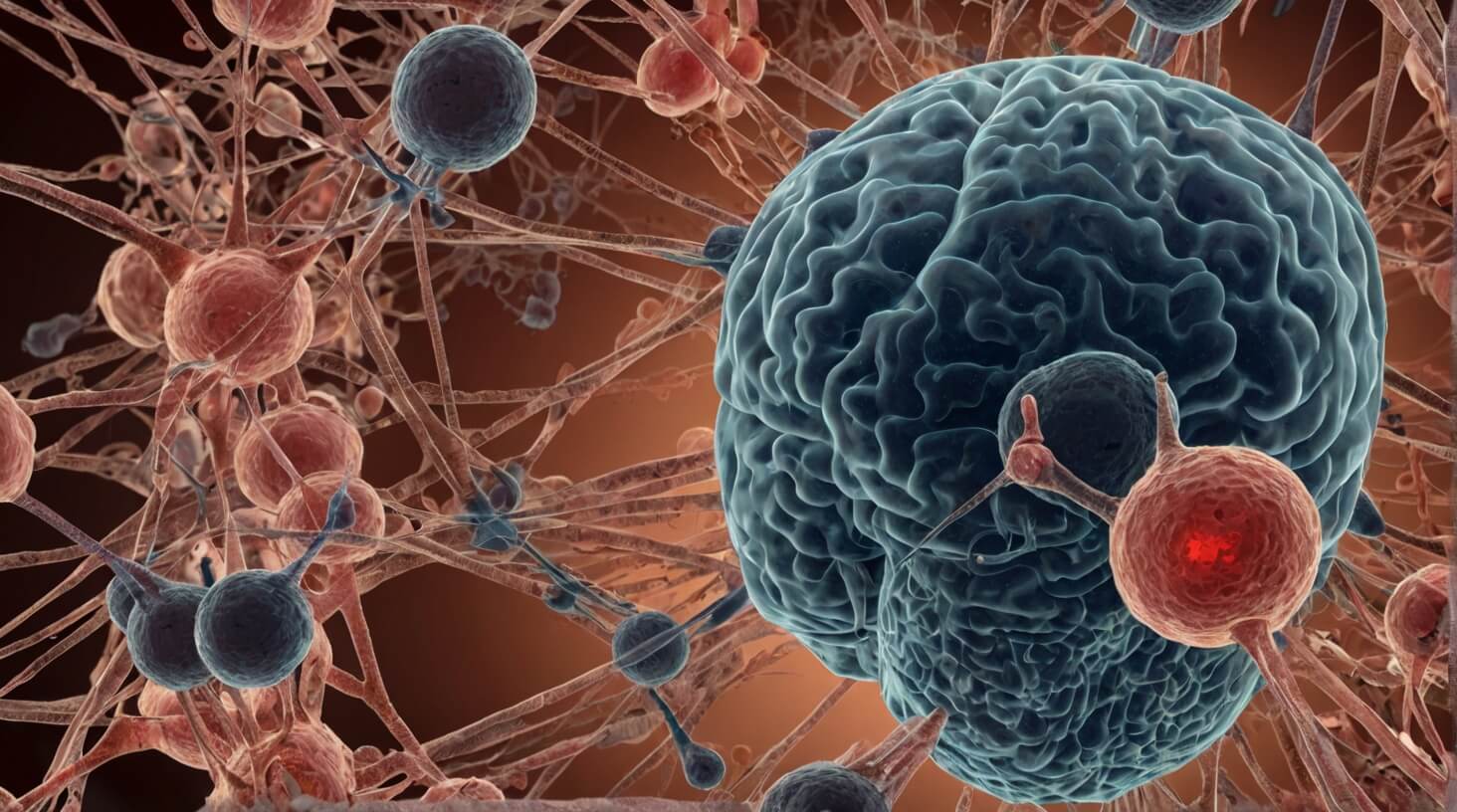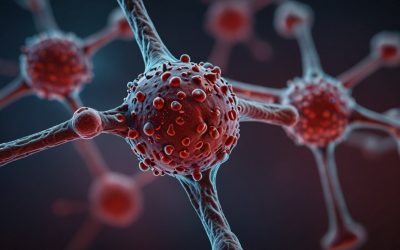While your body’s inflammation signals a healing process, it could also be quietly shaping your mental health in ways you might not realize. You’re familiar with the physical discomfort that accompanies inflammation—redness, heat, swelling, and pain—but less known is the silent conversation between inflammatory processes and your brain. Recent studies suggest that chronic inflammation might play a role in the onset of mental health conditions, such as depression and anxiety, and you might be surprised to learn how your lifestyle choices, including diet and exercise, can influence this intricate dialogue. As you navigate the complexities of mental wellness, consider how the seemingly unrelated issue of inflammation could be a key player. The emerging evidence could transform your understanding of mental disorders, and perhaps, the way you approach your own mental health.
Key Takeaways
- Chronic inflammation is linked to an increased risk of depression and anxiety.
- Inflammatory markers, such as C-reactive protein (CRP), are elevated in individuals with mental health disorders.
- Inflammation can affect neurotransmitter levels and disrupt brain function, contributing to the onset of mental health conditions.
- Targeting inflammation through interventions may help improve mental health outcomes.
Understanding Inflammation
To grasp the complexities of mental health disorders, it’s crucial to understand inflammation’s role, particularly how it interacts with the microbiota-gut-brain axis and influences neurological wellbeing. Inflammation, a normal immune response to injury or infection, becomes problematic when it transitions into chronic inflammation. This persistent state can disrupt bodily systems, including the brain’s function.
Chronic inflammation is increasingly recognized as a key factor in the pathophysiology of psychiatric disorders. Inflammatory cytokines, which are proteins produced by the immune system during an inflammatory response, can alter brain function and even contribute to mental health issues. These cytokines can affect neurotransmitter systems, synaptic plasticity, and neural circuits, thus influencing behavior and mood.
The microbiota-gut-brain axis is a bidirectional communication pathway between the gastrointestinal tract and the central nervous system, where the microbiome plays a significant role. Disruptions in this delicate balance, often reflected by alterations in the microbiome, have been linked to mental disorders. Observational studies suggest that such dysregulation of the microbiome can lead to an immune response that may trigger or exacerbate psychiatric conditions.
Moreover, inflammatory pathways are implicated in the etiology of various mental health disorders. For instance, prenatal inflammation, particularly during the second trimester, has been associated with a higher risk of developing schizophrenia. The role of inflammation in mental health is further supported by evidence showing that migration, which can alter the microbiome and immune system, is related to autoimmune disorders with psychiatric manifestations.
In your role as a caregiver or medical professional, understanding these inflammatory markers and their connections to mental health is imperative. It equips you with the knowledge to advocate for interventions that may include psychobiotics and immunomodulatory drugs, aiming to modulate the immune system and restore the microbiota balance.
Inflammation and Depression

Building on the understanding of inflammation’s impact on the brain, it’s critical to examine its specific relationship with depression, a prevalent mental health disorder. Chronic inflammation has emerged as a significant culprit in the etiology of major depressive disorder. You’ll find that depressed patients often exhibit high levels of inflammation, which can exacerbate depressive symptoms. This systemic inflammation is not simply a concurrent issue, but rather, it appears to be intricately linked with the pathophysiology of depression.
Studies have shown that chronic stress, a common trigger for depression, also leads to increased systemic inflammation, suggesting a vicious cycle that may contribute to the maintenance of depressive states. Elevated inflammatory markers, such as C-reactive protein, are frequently observed in individuals with depression, implying an increased risk for the development of the disorder when inflammation is present.
Furthermore, inflammation’s role in mental health is highlighted by the observation that anti-inflammatory medications can sometimes mirror the anti-inflammatory effects attributed to traditional antidepressants. This suggests an alternative pathway for treatment, targeting inflammation to alleviate depressive symptoms.
As you aim to serve those grappling with depression, it’s essential to recognize the potential for inflammation to influence mental well-being. Your interventions may benefit from including strategies to reduce inflammation alongside conventional treatments. By doing so, you may improve treatment outcomes for a subset of depressed patients unresponsive to standard antidepressant therapies, due to their high levels of inflammation. Thus, understanding the impact of inflammation on mental health is not just an academic exercise—it’s a crucial step towards refining and personalizing therapeutic approaches for depression.
Inflammation’s Role in Anxiety

Chronic inflammation has been identified as a key factor in the development and persistence of anxiety disorders, with research indicating that high levels of inflammatory markers may hinder the efficacy of traditional treatments for anxiety. As a healthcare professional serving patients with Mental Disorders, understanding the role of chronic inflammation is critical in addressing the complex needs of those struggling with anxiety.
Inflammatory processes can affect the brain in ways that exacerbate anxiety symptoms. These effects are not just psychological but have a physiological basis that can influence the course of treatment. The immune system’s involvement in mental health, particularly through inflammation, has opened new avenues for therapeutic interventions. By focusing on the inflammatory components contributing to anxiety, you can potentially improve outcomes for your patients.
Consider the following points that highlight the connection between inflammation and anxiety:
- Chronic inflammation can disrupt neurotransmitter systems critical for mood regulation.
- Elevated inflammatory markers are linked to increased anxiety levels.
- The immune response may alter brain function, leading to the development of anxiety symptoms.
- Addressing inflammation might enhance the effectiveness of anxiolytic treatments.
- Anti-inflammatory interventions could serve as adjunct therapies for anxiety disorders.
These aspects underscore the need for an integrated approach to mental healthcare that includes monitoring and managing inflammation. This approach not only targets the symptoms but also addresses underlying biological factors that contribute to anxiety disorders. By incorporating strategies to reduce inflammation, you can offer patients a more comprehensive treatment plan that may improve their quality of life and mental well-being.
Schizophrenia and Immune Response

Understanding the complex relationship between immune response and schizophrenia is vital, as evidence frequently points to immune dysregulation as a contributing factor in the pathogenesis of this mental disorder. In schizophrenia (SCZ), disruptions in the gut microbiome may influence systemic inflammation, which can exacerbate or potentially trigger psychotic disorders. You’ll find that animal models have underscored a causal link between microbial alterations and autoimmune phenomena, providing a framework to explore similar mechanisms in SCZ.
Pro-inflammatory states during critical developmental periods, such as the second trimester of prenatal life, have been associated with the onset of schizophrenia. This suggests that immune challenges during brain development may lay the groundwork for later SCZ pathology. In SCZ patients, postmortem brain studies have revealed altered levels of inflammatory molecules, further implicating inflammation in schizophrenia.
Moreover, treatment regimens that modify the gut microbiota result in significant changes, hinting at the gut-brain axis’s role in mediating immune response and SCZ symptoms. Serological studies bolster this connection, revealing increased antibodies against specific pathogens in individuals with schizophrenia.
With this in mind, there’s a burgeoning interest in the potential therapeutic application of anti-inflammatory drugs for SCZ. By targeting inflammatory processes, these interventions might offer new avenues to alleviate symptoms or even modify the disease course. Furthermore, the exploration of neurotrophic factors offers promise in repairing and protecting neural circuits disrupted by inflammation.
As someone keen on serving others, it’s crucial to stay informed on these developments. By understanding the nuances of immune response in schizophrenia, you can better support SCZ patients, advocating for and implementing treatments that address this often-overlooked aspect of their mental health.
Inflammation and Neurodevelopment
The pivotal role of inflammation in neurodevelopment is underscored by research linking prenatal pro-inflammatory states to an increased risk of psychiatric conditions, including schizophrenia. When inflammation levels rise during critical periods of brain development, they may disrupt the complex processes that shape the neural pathways. These disruptions can lay the groundwork for severe mental illness later in life.
Emerging evidence linking underlying inflammatory states to disorders such as autism spectrum disorder and bipolar disorder has expanded the scope of research into neuroinflammation. A systematic review and meta-analysis of this burgeoning field reveals that neurodevelopmental outcomes are intricately tied to the nature of the immune response during these sensitive periods. This has profound implications for understanding the pathophysiology of mental disorders and for exploring therapeutic potential.
Consider these facts:
- Inflammation can compromise the integrity of the brain barrier, leading to neuronal damage.
- Elevated inflammation levels have been associated with neurodevelopmental disorders, including autism spectrum disorder.
- Systematic review and meta-analysis have corroborated evidence linking inflammation to cognitive deficits and behavioral issues.
- Therapeutic interventions targeting inflammation show promise in alleviating symptoms of severe mental illness.
- The microbiota-gut-brain axis serves as a pathway through which inflammation may influence neurodevelopment and mental health.
Your role in serving others is to understand these connections and consider how interventions that modulate inflammation might benefit those at risk or suffering from mental disorders. The challenge lies in refining therapeutic strategies to harness this knowledge for the betterment of mental health outcomes.
Treatment Implications
Exploring treatment implications, researchers are investigating the therapeutic potential of psychobiotics and immunomodulatory drugs to address microbiome alterations in major mental disorders. You’re at the forefront of this endeavor, parsing through the evidence with a discerning eye. It’s clear that the inflammatory status of patients is a critical factor to consider when selecting treatment modalities.
Randomized controlled trials are the gold standard for determining the efficacy of interventions. In this context, omega-3 fatty acids have shown significant changes in inflammatory profiles, suggesting beneficial effects on mental health. These nutrients may modulate the gut microbiome, offering a promising avenue for individuals with disorders such as post-traumatic stress disorder.
Standard antidepressants have been the cornerstone of treating mental disorders, but their efficacy could be enhanced when considering the inflammatory aspects of these conditions. Here’s a breakdown of current treatment implications:
| Treatment Type | Impact on Inflammatory Status |
|---|---|
| Psychobiotics | Potential to alter gut microbiome positively and reduce inflammation. |
| Immunomodulatory Drugs | May directly modulate immune response to alleviate abnormal inflammation. |
| Nutritional Interventions | Omega-3 fatty acids could decrease inflammatory markers and support mental health. |
| Antibiotic Exposure | Can disrupt microbiota and immune function, caution advised. |
As you strive to serve others, understand that evidence for the use of these treatments is still emerging. It’s essential to approach each case individually, assessing the benefits and risks, while considering the complex interplay of the gut-brain axis. Your role is pivotal in translating this clinical knowledge into compassionate care that addresses both the mind and the body.
Future Research Directions
Diving into future research, you’ll find a pressing need to unravel how inflammation and the microbiota-gut-brain axis intricately influence mental disorders. As you seek to serve those grappling with such challenges, it’s vital to recognize the interplay between physical conditions, such as inflammatory bowel diseases or autoimmune diseases, and psychological health.
The microbiome is at the forefront of this exploration, with a growing body of evidence suggesting its role in mental health disorders, including first-episode psychosis and obsessive-compulsive disorder (OCD). Systematic reviews are required to synthesize existing data on diet, such as the Mediterranean diet, and its potential to modulate inflammation that affects the brain.
To evoke a deeper understanding and empathy, consider these key areas for future research:
- *The prenatal environment’s influence on neurodevelopment, potentially setting the stage for mental health disorders due to early inflammatory processes.*
- *The effectiveness of targeted nutritional interventions, such as Mediterranean diets, in reducing inflammation and bolstering mental health.*
- *The complex relationship between chronic conditions like cardiovascular disease and mental health, mediated by systemic inflammation.*
- *The critical role of the blood-brain barrier in protecting neural integrity from inflammatory agents like necrosis factor, which could be a therapeutic target.*
- *How the management of chronic gastrointestinal conditions, including inflammatory bowel disease, can improve mental health outcomes.*
These areas require a clinical, analytical approach, focusing on evidence-based strategies to advance your understanding of the inflammation-mental health nexus. Your commitment to this research will not only expand knowledge but also provide real-world applications to alleviate the burden of mental disorders on affected individuals.











